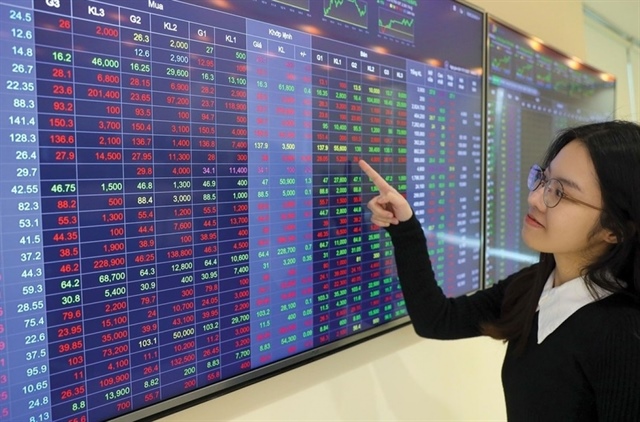Vietnam stocks to extend 2014 advance, MB Securities Says
Vietnam stocks to extend 2014 advance, MB Securities Says
Vietnam’s benchmark stock index, Southeast Asia’s best performer in 2014, may rise a further 9 percent this year as falling interest rates boost corporate earnings, according to MB Securities JSC.
The VN Index (VNINDEX) will climb as high as 670 by the end of the year, said MB Securities Chairwoman Cao Thi Thuy Nga, who correctly predicted in December that the gauge would top 560 in 2014. That would cap a 33 percent annual gain, the largest since 2009. The measure has increased 22 percent this year and traded at 613.71 at the lunchtime break in Ho Chi Minh City.
Nga forecast that profits at companies on the index will rise 15 percent to 20 percent this year. That compares with the 13.5 percent 12-monthprojection of analysts, according to data compiled by Bloomberg. Peak lending rates at commercial banks have dropped to 12 percent this year, from 13 percent last year, according to central bank data. Gross domestic product is forecast by the government to expand 5.8 percent in 2014, the fastest pace since 2011, as exports accelerate and the country’s trade surplus widens.
“All macro indicators are supporting the stock market through the rest of the year,” Nga said in a phone interview from Hanoi yesterday. Consumer-price inflation that grew at the slowest pace in five years in September and a stabilizing currency are also positive for equities, she said.
The Vietnamese dong has weakened 0.6 percent against the dollar this year, according to data compiled by Bloomberg.
MB Securities, a unit of Military Commercial Joint Stock Bank, Vietnam’s fourth-largest listed lender, recommends shares of brokerages such as Saigon Securities JSC, along with PetroVietnam Gas JSC, PetroVietnam Drilling & Well Services JSC and PetroVietnam Construction JSC, Nga said.
The VN Index is valued at 13.5 times forecast 12-month earnings, compared with the five-year average multiple of 11. That’s the second-cheapest among Southeast Asian markets, after Singapore.
bloomberg




























